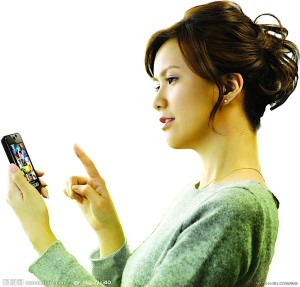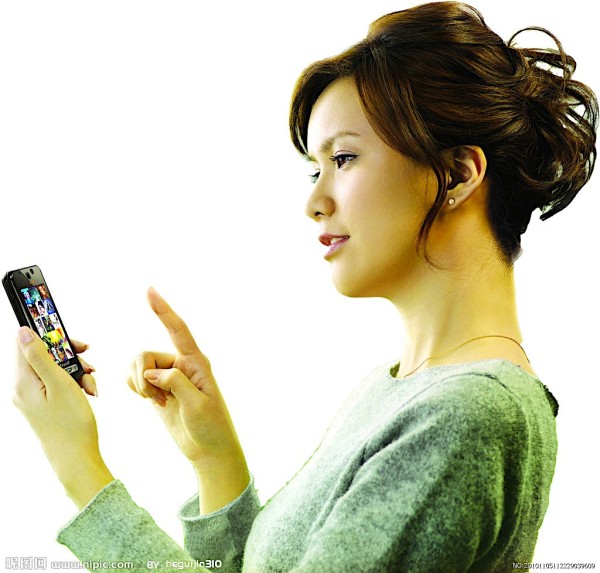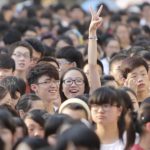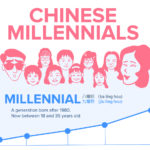Chinese Millennial’s Conspicuous Consumption
The incredibly rapid economic growth, the cultural changes, and the social transformations occurred with the opening of the market have created a unique Chinese youth generation. Unlike previous generations in China, the so-called post-80s generation and those born in the 1990s, grew up during the booming years of double-digit growth, technological developments, and personal freedom. The Chinese youngsters are characterized by a positive mindset about the future which enhanced their entrepreneurial spirits and the strong feeling of enjoying life with all its capitalistic comforts.
The radical differences between Chinese youth and the older generations
China’s young generation grew up without the scarcity that the previous generations had to know. The astonishing economic growth allows Chinese millennial to live in a period of economic development and prosperity. They have enjoyed the personal freedom of deciding about their life – freedom that was mainly denied in the previous generations. Moreover, they are living in the first period of political stability since the end of the Qing dynasty which is allowing a long-term planning of the social and personal life. All these positive elements were unthinkable for the parents and grandparents who had to struggle through political turbulence, a lifeless economy and no personal and economic rights. Chinese millennial is highly educated compared to the previous generations – 60% of them hold a Bachelor Degree and more than 25% a Master Degree – marking similar percentages to the western hemisphere. Increased mobility and economic opportunity have come with a sense of loss of traditional attitudes and ethical grounding. The ideals of socialism are losing their appeal compared to the more consumeristic and western values. The socialistic values are fading from the popular Chinese beliefs, widening the generation gap in favor of a more market-oriented society. The Chinese one-child-policy, implemented mainly in urban areas, resulted in 20 years of children without siblings. The popular and western imagination created the idea of the youngster Chinese as a selfish “little emperor”. While it is true that the Chinese millennials are more demanding and self- centered than the previous generations, it is also true that they are struggling to find a first job – usually underpaid and not appropriate with their degree – competing against nepotism and the slowdown of the Chinese economy.
China generation Y heavily relies on technology and the internet
 China’s rapid economic growth has been a worldwide proliferation of new technology, bringing new forms of communication and increased exposure to foreign culture and ideas. The incredible telecommunications developments have allowed Chinese Millennials to communicate with each other on a level that would have been unimaginable in previous decades. Greater economic opportunity, personal freedom, and exposure to ideas from foreign lands have also led the Chinese millennial to socialize in new ways.
China’s rapid economic growth has been a worldwide proliferation of new technology, bringing new forms of communication and increased exposure to foreign culture and ideas. The incredible telecommunications developments have allowed Chinese Millennials to communicate with each other on a level that would have been unimaginable in previous decades. Greater economic opportunity, personal freedom, and exposure to ideas from foreign lands have also led the Chinese millennial to socialize in new ways.
Social networks like WeChat and Weibo are a constantly checked by the average Chinese young men or women with a frequency of up to 18 times a day and, on average, young Chinese spend, at least, nine hours daily on the Internet. The incredible and variegated apps market of the Chinese smartphones has allowed millions of people to use their devices to buy and order any sort of goods with a simple click or touch. On your Smartphone, you can easily order food, medicines, books and even your home appliances. The e-commerce in China is boosting mainly due to the incredible amount of hours the youngsters spend online and their passion for trivial gadgets, clothes, and technology in general. More than 90% of all the Chinese millennial located in the top first, second and third tier cities have bought goods online at least one time in their life and around 70% are doing it on a daily basis. Surfing the web is the preferred activity of the youngsters in their free time with more than 40% claiming that they could not live without an internet connection. The incredible division of internet among the Generation Y allows more and more firms to sells they products online and to better segment and target the market with specific and ad-hoc ads.
Chinese Millenial, Consumeristic Buyers
Almost the half of Chinese millennials work in government and state organizations, highlighting the fact that the public sectors are still well rooted in the younger generations. Due to the slowing down of the Chinese economy and the difficult transition between a manufactory economy and a services economy, the vast majority of the Chinese millennials earn a salary between 3000 and 6000 RMB with only one fifth earning more than 6000 RMB. Despite the low salary and the difficulties of China’s job market, the millennials are not money savers. While in the US the youngsters try to save around 35% percent of their income, Chinese millennial spends almost 80% of their revenue. This is an important data to better understand how Shopping and Leisure’s time have pervaded the Chinese young generation. Buying new items, has become the classical habit of more than 75% of the Chinese millennials to express their needs, satisfy them and gain a feeling of belonging. In 2016, the young generation is expected to buy more than the double of all the other Asian millennials. Only one-third of the Chinese millennials prefers to buy expensive products in local or regional shops. Two third of the generation is extremely attracted to famous western brands. If technology devices are placed first on their shopping list, clothes, personal care goods, and food are increasingly important factors in the purchasing decision. When choosing where to buy luxury goods from, the majority of millennials still prefer purchasing from local brick and mortar stores (60%), instead of local e-commerce sites (10%). On the other hand, when inexpensive and every-day-products are needed, online shops – TaoBao.com (in Chinese 淘宝网), primarily – are much preferred by the 60% of the respondents. Western products and luxury brands have the appeals to be trendy, reliable and unique. In the Chinese young society where the appearance and the social class have become important issues in life, having the latest phone or the famous western brand has become a must in order to boast. Remarkably, the young Chinese generation is the one most likely to travel abroad to better know the world. Moreover, once abroad, more than 50% of Chinese millennial buy a luxury item –contributing to the high amount of $229 million reached by the Chinese people for luxury goods bought outside the Mainland.
See also:
If you enjoy reading this article and would like to know more about the Chinese market, contact us at dx@daxueconsulting.com
#ChineseMillennials don’t save much and their spending power will continue to increase https://t.co/esxxBHPrYA pic.twitter.com/hi5QTJGq7N
— Daxue Consulting (@DaxueConsulting) October 13, 2015








![[Infographic] Chinese Millennials Food Behavior](../wp-content/uploads/2016/12/1-150x150.jpg)






